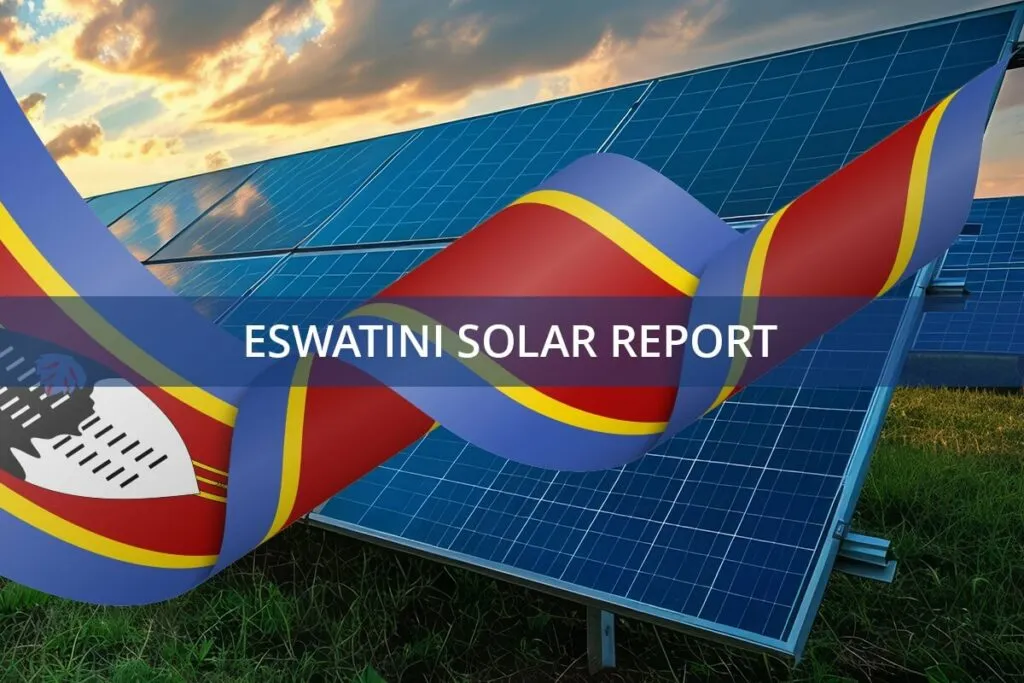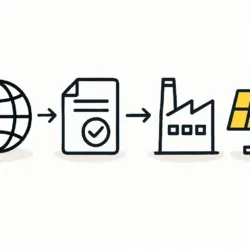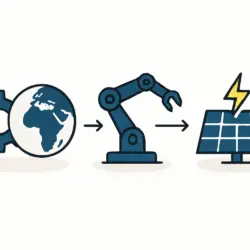Africa’s immense solar potential was a major highlight at the COP28 climate summit, with discussions focusing on the continent’s vast capacity to produce and export clean energy. Holding approximately 60% of the world’s best solar resources, the continent has the technical potential to generate over 7,900 GW of solar power, a figure that could not only satisfy its own energy needs but also significantly contribute to the global energy transition.
The Scale of Africa solar energy Opportunity
The sheer scale of this opportunity is transformative. With abundant sunshine and vast tracts of land, Africa is uniquely positioned to become a global hub for solar energy. This isn’t just about generating electricity; it’s about powering economic growth, creating sustainable jobs, and providing energy access to the 600 million people who currently live without it. Realizing this vision is central to the discussion around Africa’s Solar Potential to Lead Global Renewable Energy, positioning the continent as a pivotal player in the world’s green future.
Current Progress and Key Developments in Africa solar energy
Momentum is building across the continent as nations begin to harness this resource. To meet the accelerating demand, many countries are currently relying on imports. For instance, solar panels imported from China between July 2024 and June 2025 are expected to add 15 GW of electricity capacity.
Simultaneously, homegrown projects and international partnerships are taking root:
* Democratic Republic of Congo (DRC): The DRC recently granted regulatory clearance for a 248 MW solar project in Haut-Katanga, a significant step towards powering tens of thousands of homes.
* Côte d’Ivoire: Through supportive government policies and projects like Kong Solaire, the country is making significant strides towards energy independence and becoming an attractive market for private investment.
* Central African Republic: The launch of the CAR solar power project is another powerful example of solar energy transforming the regional energy landscape.
* Sierra Leone: Initiatives in Sierra Leone solar energy are contributing to a significant capacity boost, aligning with broader continental growth trends.
* International Partnerships: Collaborations, such as the renewable energy partnership between India and various African nations, are proving crucial for transferring knowledge and capital to transform the continent’s energy sector.
From Potential to Power: Overcoming the Hurdles in Africa solar energy
Despite these positive developments, significant challenges remain. Much of the continent’s solar resource is still untapped. The primary obstacles include the need for clearer regulatory frameworks to attract private investment, and overcoming constraints in capital and local capacity. Fully Optimizing Africa’s Solar Potential requires a strategic approach that addresses these barriers head-on.
One of the most promising long-term solutions is developing a robust local manufacturing industry. This would reduce reliance on imports, create high-skilled jobs, and build a more resilient and self-sufficient energy ecosystem.
Building a Self-Sufficient Solar Industry in Africa
Africa is not only rich in sunlight but also in many of the key solar panel raw materials needed for production. A recent UN report highlighted Africa’s critical role in providing the transition minerals essential for the global clean energy future. By leveraging these resources, the continent can move up the value chain from resource extraction to finished product manufacturing.
Establishing a local industry involves understanding the basics of solar panel manufacturing and the complete solar panel manufacturing process. It requires significant investment in infrastructure and specialized solar panel manufacturing machines. While the initial investment can be substantial, a detailed solar panel manufacturing plant cost breakdown reveals a clear path to long-term profitability and energy independence.
By combining its natural advantages with strategic investment and international cooperation, Africa can unlock its solar potential, powering its own development while helping to lead the world into a cleaner, more sustainable future.
To learn more about the intricacies of setting up a solar panel production line, explore our free e-course on solar manufacturing.



